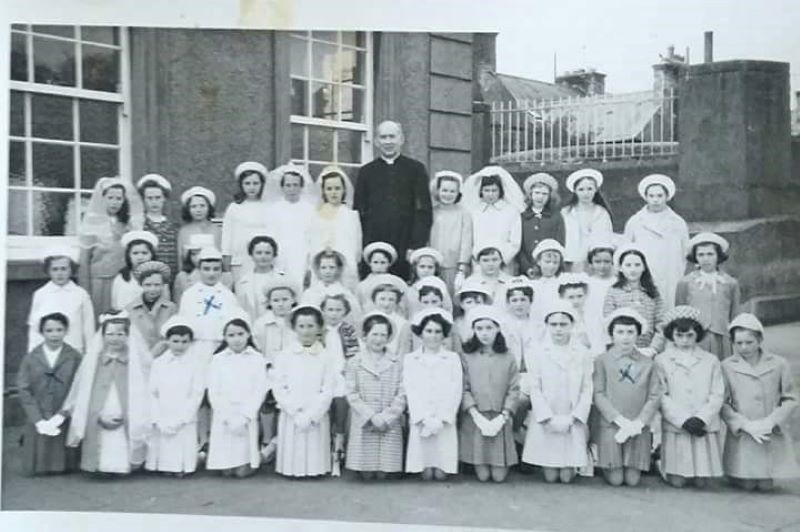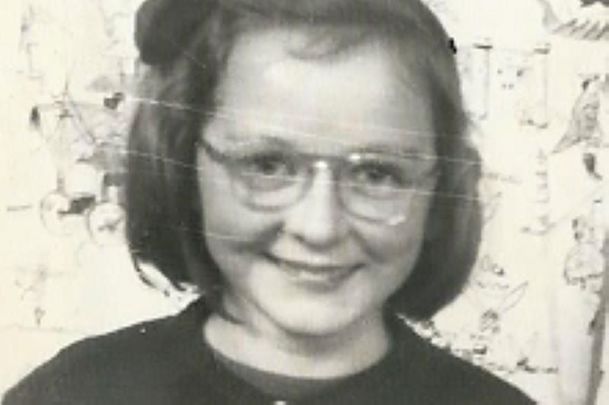In 1960, I was a young girl attending Saint Peter’s primary school. This school is on the Connaught side of Athlone town, in the Irish midlands. I was Jean Coyle, second eldest of ten children, living in 4 O’Connell Street.
Recently, I was asked to return to my former classroom where a history lesson was to be taught. I was the history lesson!
Twenty bright and eager young girls asked me questions about life ‘long ago’. Under the young teacher’s guidance, I was first asked ‘set’ questions - games we played, numbers in class, and such the like.
Then they moved onto what they really wanted to know.
A lovely ten-year-old from Pearse Street put up her hand. This girl’s granny sat beside me, sixty years ago, in the same seat in which her granddaughter now sits.
“Were ye allowed to bring cell phones into school” was her question. We didn’t have phones back then, I explained. Only shops had telephones.
Another girl from Parnell Square asked me were we allowed to wear jewellery in school. No child had jewellery, when I was young, I told her.
“Did ye have to bring in fruit every day?” a Polish girl wanted to know. I explained that we didn’t eat fruit in school, and we didn’t eat it at home either, because we had no fruit at all back then.
“Were ye allowed watch television in the morning, before ye came to school?” was the next query. You know my answer! I was beginning to despair!

Jean Farrell and her classmates outside her school on their confirmation day. (Courtesy Jean Farrell)
It all reminded me of a situation some years ago. I was teaching a bright third class, telling them about Noah’s Ark. It’s a story I tell with great enthusiasm because it is so full of life and colour. Perhaps I was over-enthusiastic! At the end, a child asked me earnestly, “Were you on it, teacher?”
These children, too, must have thought I was from the Ark! No televisions, no bathrooms, no internet nor computer games! Classes of fifty pupils, all taught by nuns dressed from head to toe in black, with only their bare faces showing. They dressed like some Muslim women do now—and for the very same reason. Each had a stick with which to beat us for not knowing our lessons or misbehaviour. Most were good and kind, but not all! We learnt long catechism answers to questions we didn’t understand. The Blessed Virgin was to be our role model for life.
But isn’t it all relative? On the radio recently I listened, astonished, to Micheál O’Muircheartaigh. He is a famous presenter of GAA games on the radio here. Micheál told of how he grew up with NO radio anywhere in his village, no cars, and no electricity. This was in Kerry, in the 1930s.
The man spoke, with joy, about their whole village heading off together to a townland, miles away, to hear the All Ireland Football Final, in the one house that did have a radio. This adventure ticks all the boxes—love of friends, fun, and another basic need—a sense of belonging, of being involved!
And to go back further - my mother-in-law lived at a crossroads in Coosan, three miles outside Athlone. She was born in 1912 and lived in the same spot all her life.
I called to visit her a couple of years ago. We sat together watching a rerun of Dallas. She told me that the only way they got any news, long ago, was if someone cycled out from town with a tale to tell.
“And now,” she said, “I sit here in my sitting room and the whole world comes into it!”
Isn’t it amazing how much has changed in our lifetime? And it happens so gradually we don’t realize it. But while the world is changing greatly people do not change. Our basic needs are the same as they always were.
Whether we are modern children texting and Googling, or back in the 50s reading our Beanos and Buntys, “All you need is love” as the hippies in San Francisco told us.
And a cent song tells of another basic need, “Girls just want to have fun” and boys too – whether you are six or sixty-six!!
*The above is an extract from Jean Farrell's book "Jean's Journal." She may be contacted at [email protected].

Love Irish history? Share your favorite stories with other history buffs in the IrishCentral History Facebook group.
This article was submitted to the IrishCentral contributors network by a member of the global Irish community. To become an IrishCentral contributor click here.




Comments